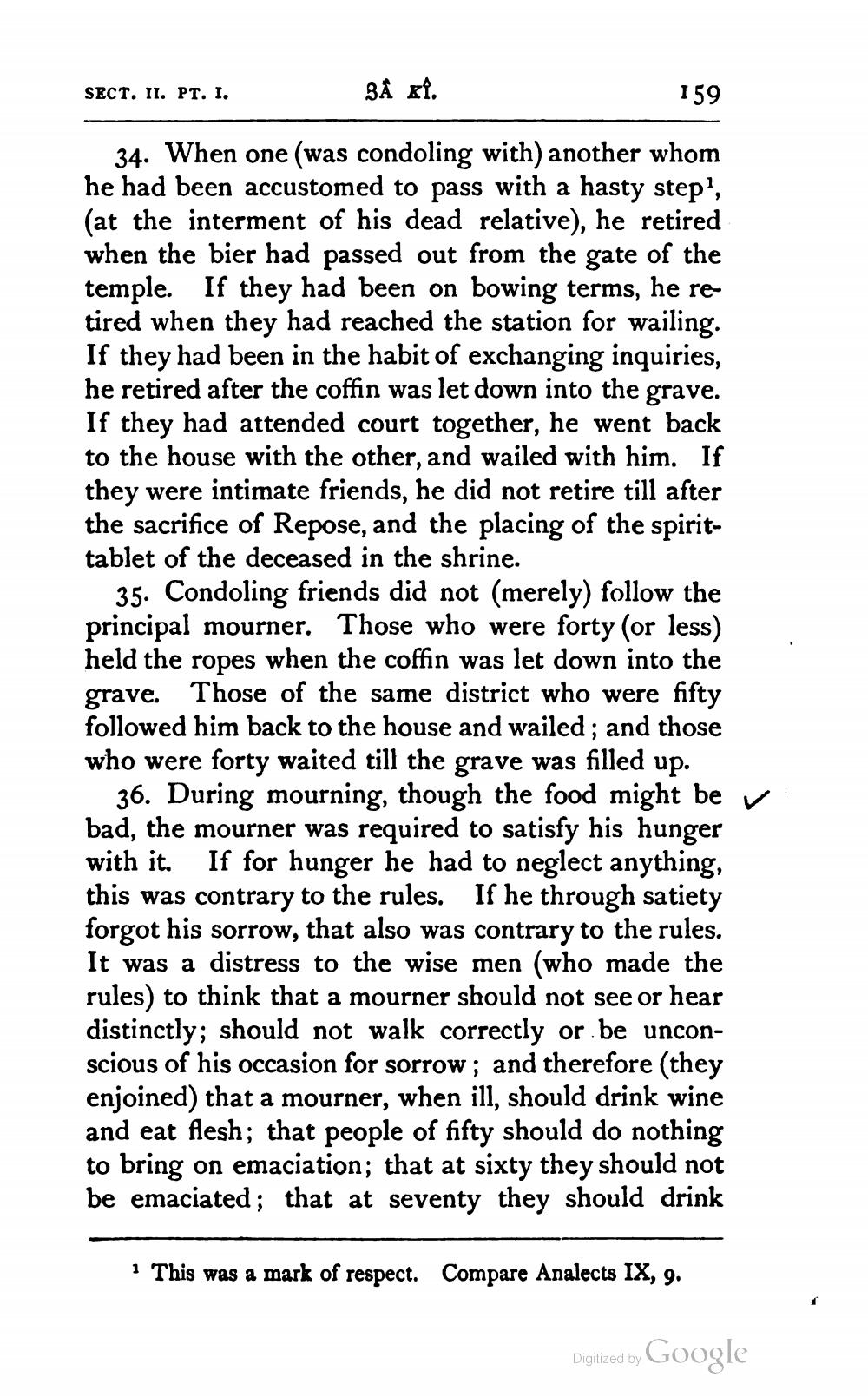________________
SECT. II. PT. I.
BA KÍ.
159
34. When one (was condoling with) another whom he had been accustomed to pass with a hasty step', (at the interment of his dead relative), he retired when the bier had passed out from the gate of the temple. If they had been on bowing terms, he retired when they had reached the station for wailing. If they had been in the habit of exchanging inquiries, he retired after the coffin was let down into the grave. If they had attended court together, he went back to the house with the other, and wailed with him. If they were intimate friends, he did not retire till after the sacrifice of Repose, and the placing of the spirittablet of the deceased in the shrine.
35. Condoling friends did not (merely) follow the principal mourner. Those who were forty (or less) held the ropes when the coffin was let down into the grave. Those of the same district who were fifty followed him back to the house and wailed ; and those who were forty waited till the grave was filled up.
36. During mourning, though the food might be v bad, the mourner was required to satisfy his hunger with it. If for hunger he had to neglect anything, this was contrary to the rules. If he through satiety forgot his sorrow, that also was contrary to the rules. It was a distress to the wise men (who made the rules) to think that a mourner should not see or hear distinctly; should not walk correctly or be unconscious of his occasion for sorrow; and therefore (they enjoined) that a mourner, when ill, should drink wine and eat flesh; that people of fifty should do nothing to bring on emaciation; that at sixty they should not be emaciated; that at seventy they should drink
· This was a mark of respect. Compare Analects IX, 9.
Digitized by Google




